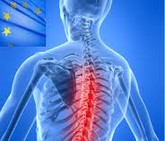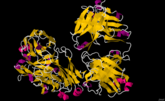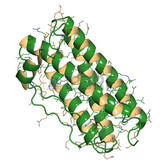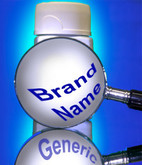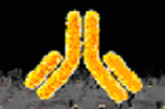Biosimilars/Research
US biosimilar uptake in the light of Obamacare
A literature review by researchers at Tufts University in the US concludes that market uptake of biosimilars in the US will depend on regulatory policies, including the smoothing out of issues concerning the country’s Food and Drug Administration (FDA) regulatory pathway [1, 2]. The review comes in the light of a new approval pathway for biosimilars established as part of the US Government’s Affordable Care Act, more widely known as Obamacare.
Use of biosimilars in rheumatology
In order to issue a position statement on the use of biosimilars in rheumatic diseases, the Sociedade Portuguesa de Reumatologia (Portuguese Society of Rheumatology) carried out two systematic literature reviews: one on clinical trials and one on international position papers for biosimilars [1].
Rituximab ‘similar biologic’ shows equivalent efficacy and safety
A retrospective analysis of cancer patients who received either originator or ‘similar biologic’ rituximab chemotherapy showed comparable efficacy and safety [1].
Patient access to rituximab in emerging markets
A Pfizer-sponsored study looking at access to the oncology treatment rituximab has revealed that use of this important drug would increase across all therapy types and markets if a biosimilar was available. A rituximab biosimilar would have the greatest impact in Brazil, Mexico and Russia.
Biosimilar trastuzumab candidates in phase III development
The introduction of Herceptin (trastuzumab) revolutionalized the treatment of breast cancer. Prior to its introduction there were few treatment options available to women with human epidermal growth factor receptor 2-positive (HER2+) breast cancer.
Comparison of biosimilar filgrastim versus other G-CSF formulations after autologous stem cell transplantation
Introduction
Only limited data have been so far published about the use of biosimilar filgrastim in haematologic recovery after autologous stem cell transplantation (ASCT). Despite the limitation due to retrospective analysis performed on a limited number of patients, all these studies suggest a substantially similar efficacy of biosimilar products, when compared to originators in the febrile neutropenia prophylaxis of lymphoma and myeloma patients post-ASCT. The aim of this study was to compare the biosimilar filgrastim Zarzio with the other available formulations of granulocyte colony-stimulating factor (G-CSF) in terms of efficacy and safety [1].
Extrapolation of indications in biosimilars: filgrastim
Extrapolation* of indications for biosimilars is a contentious issue and has been met with concern by physicians. Members of the European Medicines Agency's (EMA) Biosimilar Medicinal Products Working Party (BMWP) address these concerns using extrapolation of indications in biosimilar filgrastim as an example [1].
Biosimilars: when indications can be extrapolated
Extrapolation* is already a well-established and accepted scientific and regulatory principle, according to members of the European Medicines Agency's (EMA) Biosimilar Medicinal Products Working Party (BMWP) [1].
Predicting the response of diabetes patients to biosimilar insulin
For patients with type 1 diabetes, the quality of the insulin they take is a matter of life and death. The situation is similar for patients with type 2 diabetes. The question is what will these patients think about switching from their current brand-name insulins to new biosimilar versions? The question is important right now with the imminent arrival of biosimilar insulins on the market.
Biosimilars: similar but not identical
One reason for distrust among physicians over using biosimilars in extrapolated* indications could be the fact that it is frequently cited that biosimilars are ‘similar but not identical’ compared to small molecule generics, which are often referred to as ‘identical’.
Study results show safety of switching to biosimilar infliximab
US-based Epirus Biopharmaceuticals (Epirus) announced on 23 September 2014 positive week 58 follow-up data from its global phase III study for its biosimilar infliximab (BOW015). Results of the open label phase, which was carried out in rheumatoid arthritis patients, demonstrated comparable safety and efficacy compared to the originator product (Remicade).
Extrapolation for biosimilars
Regarding extrapolation* of indications for biosimilars, the European Medicines Agency (EMA) has stated that ‘if clinical similarity can be shown in a key indication, extrapolation of efficacy and safety data to other indication(s) of the reference product may be possible’ under certain conditions [1].
Biosimilar bevacizumab similar to Avastin in preclinical assessments
Preclinical assessments have demonstrated the similarity of biologicals major Amgen’s biosimilar bevacizumab candidate (ABP 215) to Avastin [1].
Mobilization of stem cells by biosimilar Nivestim and Neupogen
Comparison of biosimilar granulocyte colony-stimulating factor (G-CSF), Nivestim and originator G-CSF, Neupogen (filgrastim), showed no statistical differences when used for the mobilization of peripheral blood stem cells in patients treated for haematological malignancies [1].
Phase III study of biosimilar adalimumab meets primary endpoint
Biologicals major Amgen announced on 8 October 2014 the first late-stage data from its biosimilars programme. Primary efficacy analysis from a phase III trial of Amgen’s adalimumab biosimilar (ABP 501) compared with Humira (adalimumab) has demonstrated ‘clinical equivalence’.
Strategy for biosimilars in China
China is one of the largest pharmaceutical markets in the world, and has seen rapid growth in the biopharmaceuticals industry in recent years. However, it is still lacking guidance when it comes to biosimilars. Authors Li and Tuan from the Shenyang Pharmaceutical University, China, discuss how this affects biologicals companies in China [1].
Biosimilar etanercept demonstrates equivalent efficacy
A phase III trial comparing Hanwha Chemical Corporation (Hanwha)’s biosimilar etanercept, HD203, with Enbrel (etanercept) has demonstrated equivalent efficacy [1].
Adalimumab biosimilar has comparable pharmacokinetics to Humira
An adalimumab biosimilar (CHS-1420) from fledgling biotech company Coherus Biosciences (Coherus) has shown comparable pharmacokinetics in a pivotal clinical study.
The future of biosimilar use and regulation in Latin America
There is a growing uptake of biosimilars in Latin America, but this has not been accompanied by an increase in pharmacovigilance, training or regulation. To address this, an expert panel was put together to discuss the issues involved. The panel’s perspectives on the current status led to six major recommendations drawn up to enhance the safe use of biosimilars across the region [1].
ECCO survey highlights lack of confidence in biosimilar mAbs
In a presentation at the EuropaBio and the Alliance for Safe Biologic Medicines (ASBM) roundtable on naming, transparency and traceability for biosimilars [1], held on 18 March 2014 in Brussels, Belgium, Dr Alessandro Armuzzi presented results of a survey of European Crohn’s and Colitis Organisation (ECCO) members [2]. The results of the survey highlight the lack of confidence ECCO members have in biosimilars and the need for continued education.

